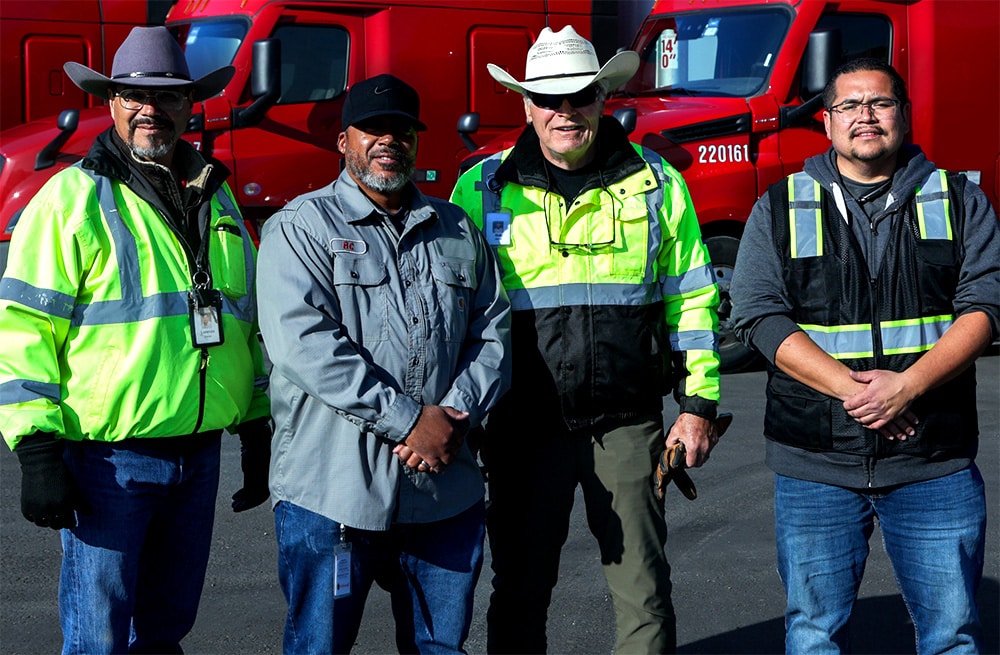Truck Driver Requirements
Truck Driver Requirements

If you’ve ever dreamed of hitting the open road, exploring new horizons, and experiencing the freedom that comes with it, a career as a truck driver might be just what you’re looking for. But before you can embark on this exciting journey, you need to meet certain truck driver requirements. In this article, we’ll guide you through the essential qualifications and skills you’ll need to become a successful truck driver.
What Does It Take to Become a Truck Driver?
Educational Requirements
To get started on the path to becoming a truck driver, you don’t necessarily need a college degree. However, a high school diploma or equivalent is typically required. Additionally, some employers may prefer candidates with basic math and communication skills.
Licensing and Certification
The most critical requirement for becoming a truck driver is obtaining a commercial driver’s license (CDL). To acquire a CDL, you’ll need to pass both a written knowledge test and a skills test, which includes a pre-trip inspection, a basic control skills test, and a road test. Different types of CDLs are available, depending on the size and type of vehicles you intend to operate. It’s crucial to choose the right one for your career goals.

+ Skills and Qualities of a Good Truck Driver
Driving Skills
Mastering the art of driving is, unsurprisingly, a top requirement for truck drivers. You’ll need to develop exceptional driving skills, including maneuvering large vehicles, handling various road conditions, and parking in tight spaces. Experience behind the wheel is invaluable in this profession.
Physical Fitness
Truck drivers must be in good physical shape. The job can be physically demanding, requiring you to load and unload cargo, perform vehicle inspections, and spend long hours on the road. Maintaining your health and stamina is essential for your safety and well-being.
Time Management and Patience
Truck drivers often face tight schedules and long hours. Excellent time management skills are crucial to ensure deliveries are made on time. Patience is equally important, especially when dealing with traffic, inclement weather, and unexpected delays.
+ The Importance of Safety
Safety Training
Safety is a top priority in the trucking industry. Before hitting the road, you’ll undergo safety training to learn about accident prevention, load securement, and emergency procedures. Staying safe and keeping others safe should always be your primary concern.

Defensive Driving
Truck drivers must be adept at defensive driving. This means anticipating potential hazards, maintaining a safe following distance, and constantly scanning the road for any dangers. Defensive driving skills can save lives.
+ Understanding the Legal Side
Hours of Service Regulations
Truck drivers must adhere to strict hours of service regulations, which govern the maximum number of hours you can drive in a day and week. These regulations are in place to prevent driver fatigue and promote road safety.
Compliance with DOT Requirements
The Department of Transportation (DOT) sets forth requirements for truck drivers, including regular vehicle inspections and maintenance. Compliance with these regulations is essential to avoid fines and keep the roads safe.
+ The Road to a Successful Trucking Career

Finding a Reputable Trucking School
To kickstart your trucking career, you’ll likely need to attend a trucking school. Look for a reputable school that offers comprehensive training programs and helps you prepare for your CDL exams.
Landing Your First Job
Once you’ve obtained your CDL, it’s time to hit the job market. Many trucking companies hire newly licensed drivers, and your first job will be a stepping stone to gaining valuable experience and advancing your career.
Becoming a truck driver can be an incredibly rewarding career choice, offering adventure, independence, and competitive pay. To succeed, you must meet the educational, licensing, and skill requirements outlined in this article. Remember that safety should always be your top priority, and continuous learning and improvement are keys to a prosperous career on the open road.
